Sharjah’s deputy Ruler urges unified humanitarian action for Palestinians in Gaza and beyond
Emirati delegation visits Jordan’s Marka camp to assess humanitarian initiatives
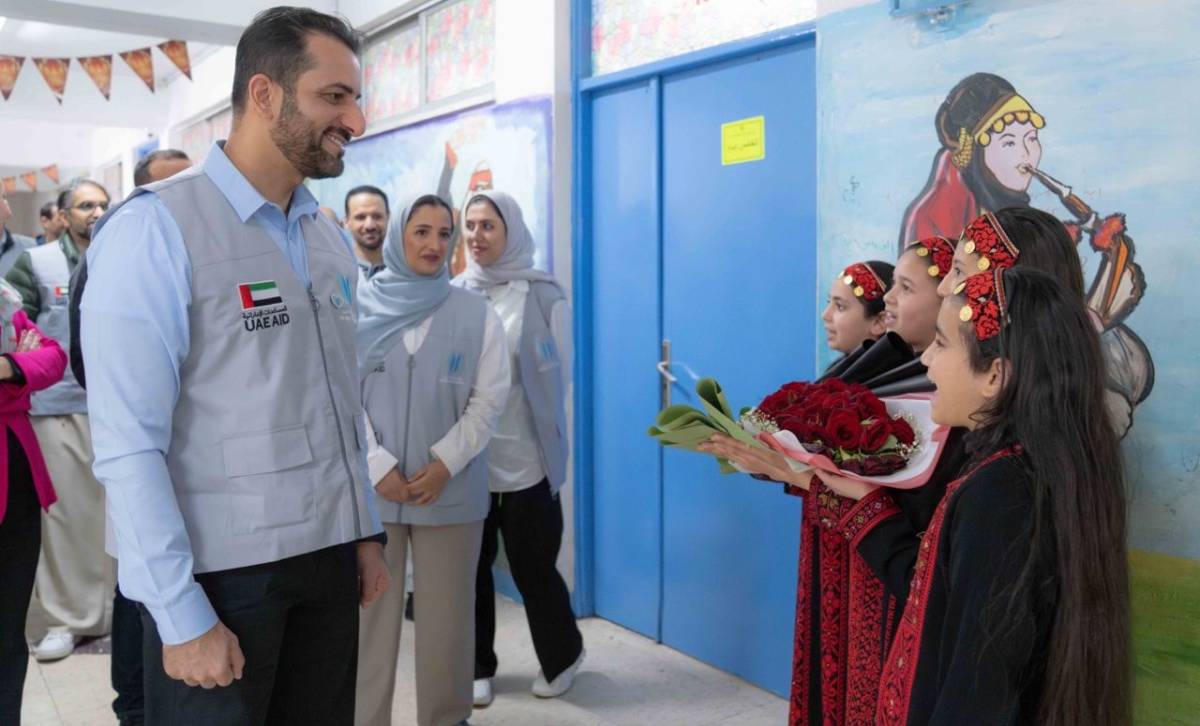
DUBAI: His Highness Sheikh Sultan bin Ahmed Al Qasimi, Deputy Ruler of Sharjah and Humanitarian Envoy of The Big Heart Foundation (TBHF), has emphasised the critical need for united humanitarian action to support Palestinians, especially those facing extreme hardship in Gaza.
Stressing the importance of sustainable development, His Highness called for long-term investment in health, education, and food security to restore dignity and stability to affected communities. These remarks were made during a field mission to the Hashemite Kingdom of Jordan, where His Highness Sheikh Sultan bin Ahmed Al Qasimi led a Sharjah delegation to the Marka refugee camp and affiliated humanitarian institutions.
The visit formed part of the broader ‘For Gaza’ campaign launched by Her Highness Sheikha Jawaher bint Mohammed Al Qasimi, Chairperson of TBHF, during the holy month of Ramadan. This initiative aims to provide comprehensive support for over 20,000 orphaned children in Gaza by ensuring continued access to education, healthcare, nutrition, and shelter.
Refugee camp visit
Home to more than 70,000 Palestinian refugees, the Marka refugee camp – referred to officially as Hitteen Camp – was the focal point of the delegation’s visit. His Highness Sheikh Sultan bin Ahmed Al Qasimi was accompanied by senior representatives from TBHF, Sharjah government departments, and UAE-based private sector entities. The purpose of the visit was to evaluate existing models of effective and sustainable humanitarian interventions, with a view to replicating similar initiatives in Gaza and across refugee-hosting nations.
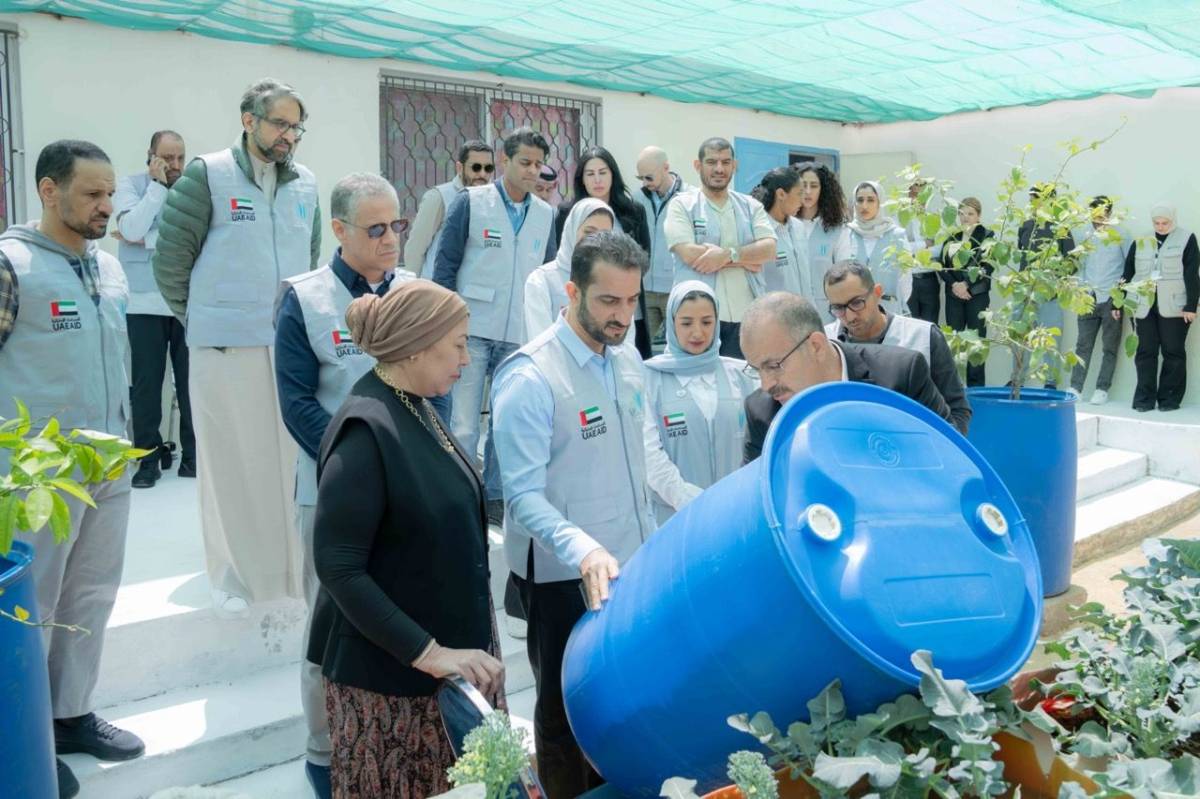
The visit also included key meetings at the Marka Girls’ Preparatory School, which is managed by the United Nations Relief and Works Agency for Palestine Refugees (UNRWA). His Highness engaged in dialogue with Natalie Boucly, Deputy Commissioner-General of UNRWA; Olaf Becker, Director of UNRWA Affairs in Jordan; and Rafiq Khirfan, Director-General of the Department of Palestinian Affairs at Jordan’s Ministry of Foreign Affairs. The focus was on building collaborative frameworks that address health, education, and social development needs of Palestinians, both in Gaza and in Jordan’s refugee communities.
In an interaction with members of the student parliament from Marka Camp, His Highness Sheikh Sultan bin Ahmed Al Qasimi listened to personal accounts highlighting the educational challenges faced by young Palestinian refugees. Touring classrooms and speaking with educators, His Highness Sheikh Sultan bin Ahmed Al Qasimi assessed current infrastructural conditions and reviewed future development needs for the school.
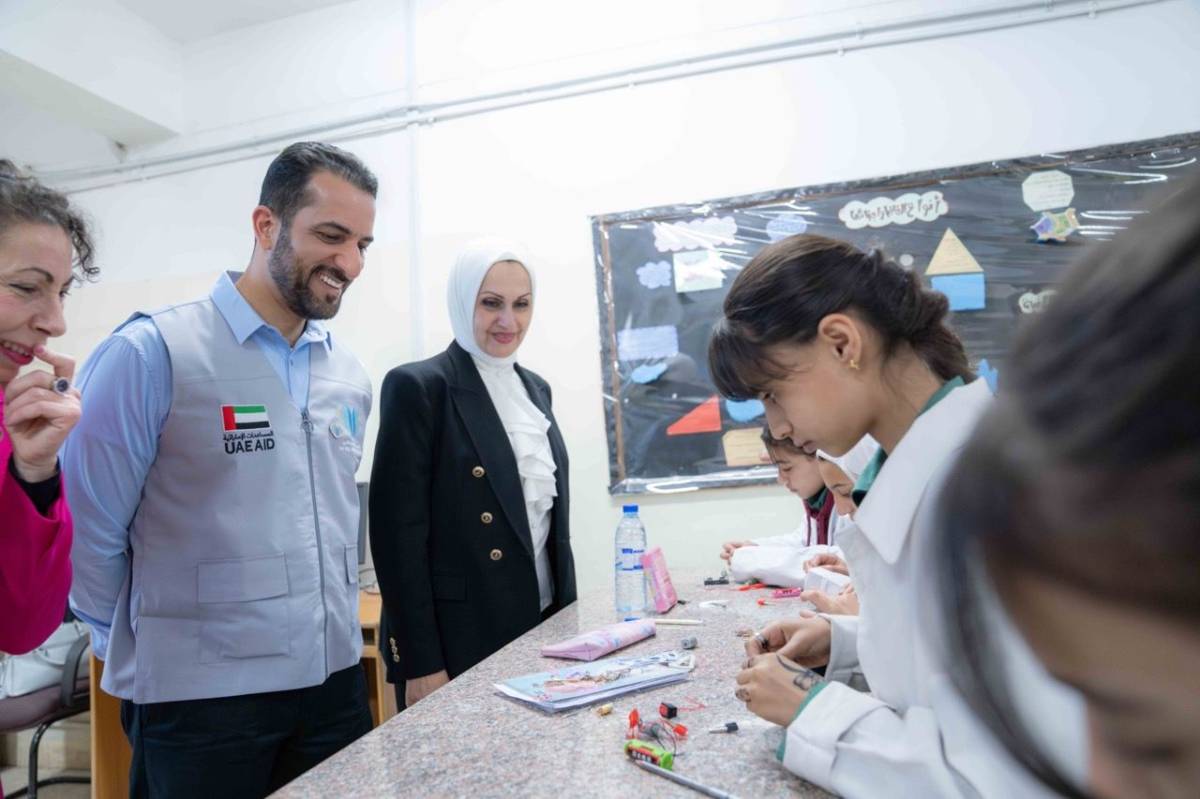
Food security initiatives
One of the notable segments of the visit included a site tour of a food security initiative by the American Near East Refugee Aid (ANERA), which operates in Palestine, Lebanon, Syria, and Jordan. The programme empowers refugee communities by equipping them with the tools and knowledge required to produce their own food. It supports year-round agricultural output through greenhouses and microfarms. This initiative not only boosts self-reliance but also aligns with TBHF’s strategic objective to reduce long-term dependence on external humanitarian aid.
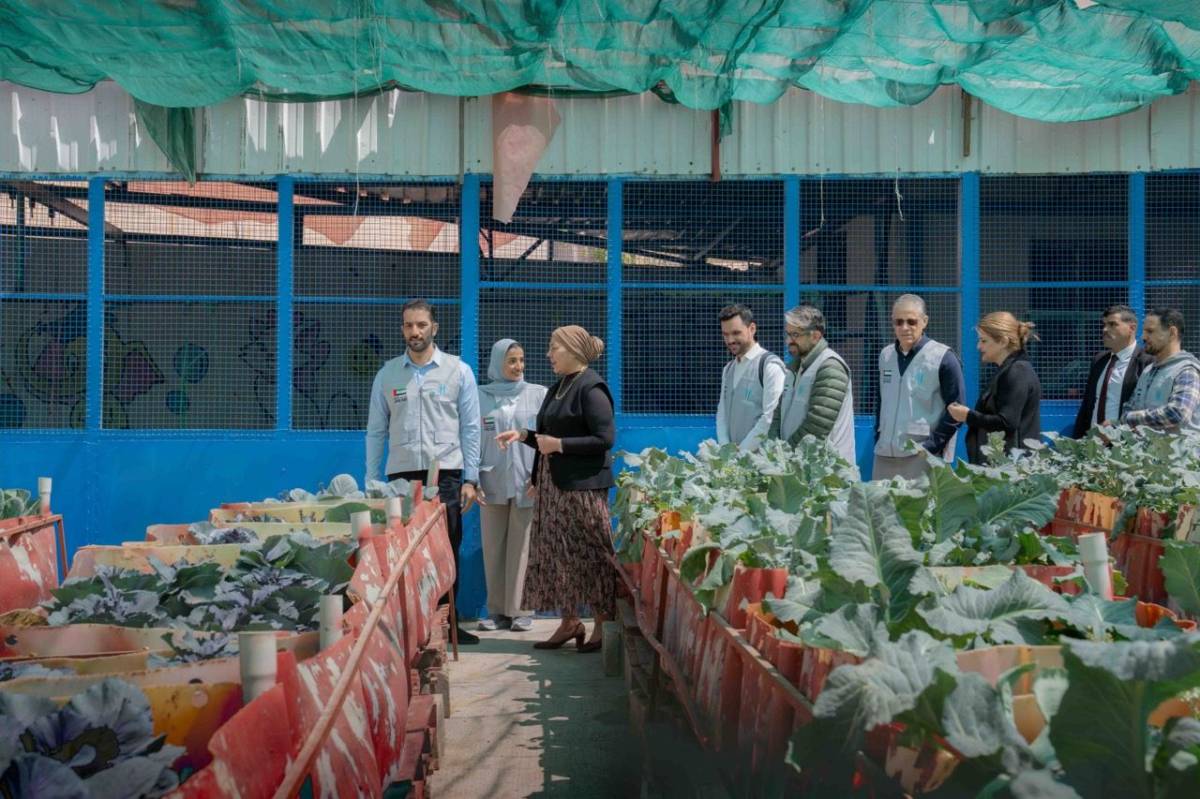
With food insecurity identified as one of the most urgent humanitarian threats facing Gaza, such models of community-based agricultural sustainability are gaining relevance. TBHF seeks to replicate these efforts in Gaza, where recurring conflict has shattered food systems and restricted imports.
‘For Gaza’
In a separate meeting with representatives from Palestine’s Tawoon Foundation, TBHF’s primary partner in the “For Gaza” campaign, His Highness explored collaborative avenues to scale up critical humanitarian services in Jordan, Gaza, and the West Bank. The discussion addressed rapid response mechanisms, essential service provision, and long-term strategies for displaced populations.
Of particular focus was the Noor programme, spearheaded by Tawoon in the Gaza Strip, which serves orphaned children. According to figures presented during the meeting, more than 39,000 children in Gaza have been orphaned as a result of the ongoing war. The delegation reviewed both live and pre-recorded briefings from humanitarian workers stationed in Gaza and neighbouring Egypt, shedding light on the urgent needs on the ground.
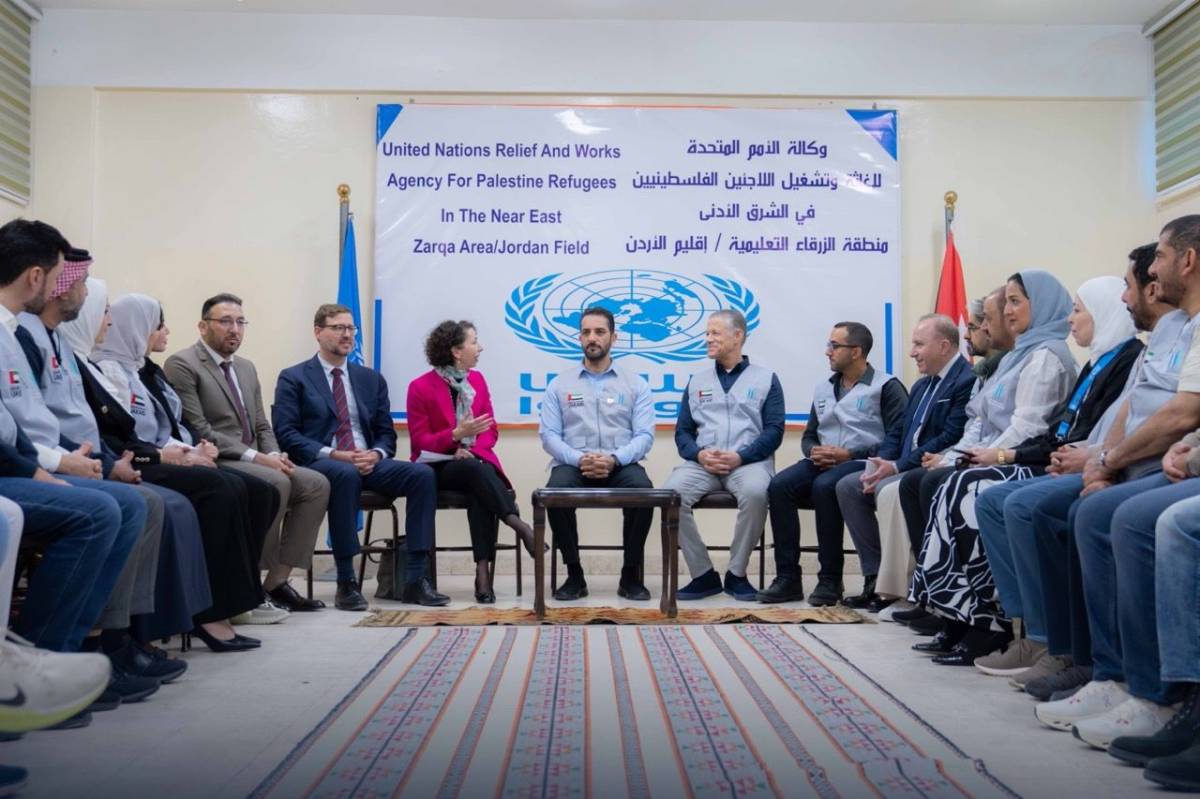
The visit concluded with a high-level debrief session, where the delegation reviewed outcomes, assessed best practices in humanitarian response, and discussed adaptation of these models to support displaced persons inside the occupied Palestinian territories. His Highness Sheikh Sultan bin Ahmed Al Qasimi reiterated the need to shift the paradigm of humanitarian assistance from short-term relief to sustainable development, in line with regional and international goals.
Sustained support
Speaking on the broader context of the humanitarian crisis, His Highness Sheikh Sultan bin Ahmed Al Qasimi stated, “The Palestinian people have endured decades of displacement and now face severe humanitarian suffering in Gaza as a result of the ongoing war, which has dismantled their social and institutional structures and deprived them of basic human rights, including access to education and healthcare.”
“Our humanitarian efforts must go beyond immediate relief to include sustainable projects that support current and future generations through health and education,” he said. “Health represents the foundation of active and thriving communities, while education protects future generations from the long-term consequences of tragic events, even if conditions eventually improve.”
His Highness Sheikh Sultan bin Ahmed Al Qasimi further added: “The current realities challenge the humanitarian system’s ability to fulfil its duties under difficult circumstances. Our mission is to exert every effort, together with all compassionate individuals worldwide, to ensure the system continues to carry out its responsibilities. Humanitarian work is a religious and moral obligation, and a right of the vulnerable and the needy, which we are all duty-bound to uphold.”
The high-profile delegation accompanying His Highness included Sheikh Fahim Al Qasimi, Chairman of the Department of Government Relations in Sharjah and co-founder of Seafood Souq; Sheikh Sultan bin Saud Al Qasimi, Founder of the Barjeel Art Foundation; and Major General Abdullah Mubarak bin Amir, Commander-in-Chief of Sharjah Police.
Also present were Badr Jafar, Advisory Board Member of TBHF and Special Envoy of the Foreign Minister for Business and Philanthropy; Hassan Yaqoub Al Mansoori, Director General of the Office of His Highness Sheikh Sultan bin Ahmed Al Qasimi and Secretary-General of the Sharjah Media Council; and Mariam Al Hammadi, Director General of NAMA Women Advancement.
The delegation further included senior executives and humanitarian advocates such as Alya Obaid Al Musaiebi, Director of TBHF; Rashed Al Obad, Managing Director of Sharjah Media City; Abdulla Matar Al Mannaei of Emirates Auction; Nikhil R. Kilachand of Dodsal Group; Ali Al Khayyal from Sharjah Charity House; Rasha Al Mubarak of Naiy Production House; Adi Al Fardan of Adi Al Fardan Jewellery; Samer Sayegh of National Paints Factories Co. Ltd.; Ahmed bin Suleiman of Burjeel Holdings; Gurubasu Katageri and Melissa Bayik from Arada Real Estate Development.